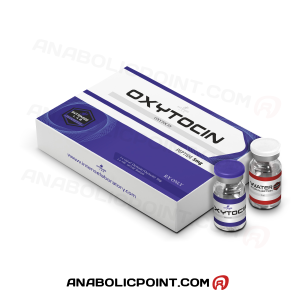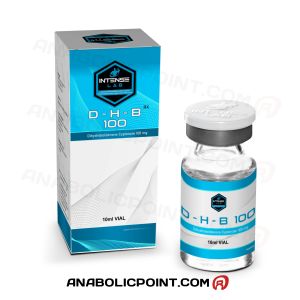Your basket is currently empty!
Testosterone Therapy in Combat Sports: Enhancing Performance or Raising Ethical Concerns?
Testosterone therapy, a medical treatment for individuals with low testosterone levels, has become a contentious topic in combat sports. While the therapy is crucial for those with clinical deficiencies, its use in sports has sparked debates about fairness, health implications, and ethical boundaries. The intersection of testosterone therapy and combat sports raises questions about how hormonal treatment affects performance, recovery, and competition integrity.
This article delves into the role of testosterone therapy in combat sports, its potential benefits, risks, and controversies. By examining the science behind the therapy, its legal and ethical considerations, and the broader implications for athletes, we aim to provide a comprehensive understanding of this complex topic.
Testosterone: The Hormone of Vitality and Performance
Testosterone is a key hormone responsible for muscle growth, bone density, energy levels, and overall vitality. It plays a particularly significant role in athletic performance, influencing strength, endurance, and recovery. For male athletes, testosterone levels typically peak in their late teens and early twenties, gradually declining with age. In some cases, medical conditions or lifestyle factors can lead to abnormally low testosterone, also known as hypogonadism.
In combat sports—such as boxing, MMA, and wrestling—testosterone levels directly impact an athlete’s ability to train, recover, and perform at their best. Low testosterone can result in fatigue, reduced muscle mass, slower recovery, and diminished aggression, all of which are critical in high-intensity competition. Testosterone therapy, when prescribed for legitimate medical reasons, aims to restore hormone levels to a normal range.
The Role of Testosterone Therapy in Combat Sports
Testosterone therapy involves supplementing or replacing natural testosterone through injections, gels, or other methods. For athletes in combat sports, this treatment may offer benefits such as improved energy, enhanced muscle recovery, and increased physical performance. However, the use of testosterone therapy in sports is heavily regulated due to its potential to provide an unfair competitive advantage.
The World Anti-Doping Agency (WADA) and other governing bodies have strict guidelines for testosterone therapy. Athletes must obtain a Therapeutic Use Exemption (TUE) to use testosterone legally in competition, proving that the treatment is medically necessary and not intended for performance enhancement.
Potential Benefits for Combat Sports Athletes
Enhanced Recovery and Muscle Maintenance
Combat sports demand grueling training schedules that can take a toll on the body. Testosterone therapy helps improve muscle protein synthesis, aiding recovery and reducing the risk of overtraining. This is particularly beneficial for older athletes or those recovering from injuries.
Improved Strength and Stamina
Testosterone therapy can increase lean muscle mass and bone density, leading to greater strength and resilience. It also boosts red blood cell production, enhancing oxygen delivery to muscles and improving endurance.
Mental Focus and Aggression
Testosterone influences mental clarity, focus, and aggression—traits that are crucial in combat sports. Proper therapy can help athletes maintain the mental edge needed for competition.
Risks and Side Effects of Testosterone Therapy
Despite its potential benefits, testosterone therapy carries risks that should not be overlooked. Prolonged or inappropriate use can lead to serious health complications, including cardiovascular issues, hormonal imbalances, and liver damage. For combat sports athletes, these risks are compounded by the physical demands of the sport.
Cardiovascular Concerns
Testosterone therapy may increase the risk of heart attack, stroke, and hypertension. Elevated red blood cell levels, while beneficial for endurance, can also lead to blood thickening, raising the likelihood of clotting.
Hormonal Suppression
Exogenous testosterone suppresses the body’s natural hormone production. Over time, this can lead to testicular atrophy and long-term dependence on therapy.
Psychological Effects
While testosterone can improve mood and focus, excessive levels may cause irritability, aggression, or anxiety. These side effects can negatively impact an athlete’s mental health and relationships.
Ethical and Legal Implications
The use of testosterone therapy in combat sports raises ethical concerns about fairness and integrity. Even when legally prescribed, the treatment can blur the line between therapeutic use and performance enhancement.
The Controversy Surrounding Testosterone Therapy
The Line Between Treatment and Enhancement
One of the central debates around testosterone therapy in combat sports is whether it constitutes a legitimate medical treatment or a form of doping. Critics argue that even therapeutic doses can provide an unfair advantage by restoring testosterone levels to the upper end of the normal range, effectively enhancing performance.
Public Perception and Stigma
Athletes who use testosterone therapy often face scrutiny and stigma, with some fans and competitors questioning their legitimacy. This can create psychological pressure and undermine their achievements, even when their use of therapy is medically justified.
Regulatory Challenges
Governing bodies like WADA have stringent processes for granting TUEs, but these protocols are not foolproof. The potential for abuse remains a concern, as some athletes may seek therapy to gain an edge rather than address a genuine medical need.
Case Studies: Testosterone Therapy in Combat Sports
Several high-profile cases have brought testosterone therapy into the spotlight. Fighters in MMA and boxing, for example, have openly discussed their use of testosterone therapy, igniting debates about its role in their success. These cases highlight the challenges of balancing athlete health with the need for a level playing field.
In some instances, athletes who relied on testosterone therapy faced backlash or had their achievements questioned. This underscores the importance of transparency and adherence to regulations in maintaining trust within the sport.
Alternatives to Testosterone Therapy
For athletes with low testosterone who wish to avoid therapy, natural strategies may offer a viable alternative. Lifestyle modifications such as improved diet, increased sleep, stress reduction, and resistance training can help boost natural testosterone production. Additionally, natural supplements like zinc, magnesium, and vitamin D have shown promise in supporting hormonal health.
These alternatives align with the ethos of clean sport, prioritizing health and performance without the risks associated with hormonal treatments.
Questions and Answers About Testosterone Therapy in Combat Sports
- What is testosterone therapy?
Testosterone therapy is a medical treatment for individuals with low testosterone levels, involving the supplementation of the hormone to restore normal function. - Why is testosterone therapy controversial in combat sports?
It is controversial because it can blur the line between necessary medical treatment and performance enhancement, raising ethical and fairness concerns. - Do all athletes using testosterone therapy have a medical condition?
Ideally, yes. Athletes must obtain a Therapeutic Use Exemption (TUE) to demonstrate that their use is medically necessary. - What are the benefits of testosterone therapy for combat athletes?
Benefits include enhanced recovery, improved muscle mass and strength, increased endurance, and better mental focus. - What risks are associated with testosterone therapy?
Risks include cardiovascular issues, hormonal imbalances, liver damage, and psychological side effects such as aggression or anxiety. - Can testosterone therapy give athletes an unfair advantage?
Yes, even therapeutic doses can enhance performance by optimizing hormone levels, leading to debates about fairness in competition. - How is testosterone therapy regulated in combat sports?
Governing bodies like WADA require athletes to obtain a TUE and adhere to strict guidelines to ensure fair use. - Are there natural alternatives to testosterone therapy?
Yes, natural methods like proper nutrition, regular exercise, and supplements such as zinc and vitamin D can support testosterone production. - What is a Therapeutic Use Exemption (TUE)?
A TUE is a document allowing athletes with medical conditions to use banned substances like testosterone legally under strict regulations. - What is the future of testosterone therapy in combat sports?
The future likely involves stricter regulation, better detection methods, and ongoing debates about the balance between athlete health and competition integrity.
Rethinking the Role of Testosterone Therapy
Testosterone therapy occupies a complex space in combat sports, offering both potential benefits and significant challenges. For athletes with genuine medical needs, it can be a lifesaving treatment that enables them to compete at their best. However, its misuse and the ethical questions it raises demand careful regulation and transparency.
As the debate continues, it is essential to prioritize the health and well-being of athletes while maintaining the integrity of competition. By fostering open dialogue, advancing research, and refining regulations, the sporting community can navigate this challenging issue responsibly, ensuring that combat sports remain both competitive and fair.













